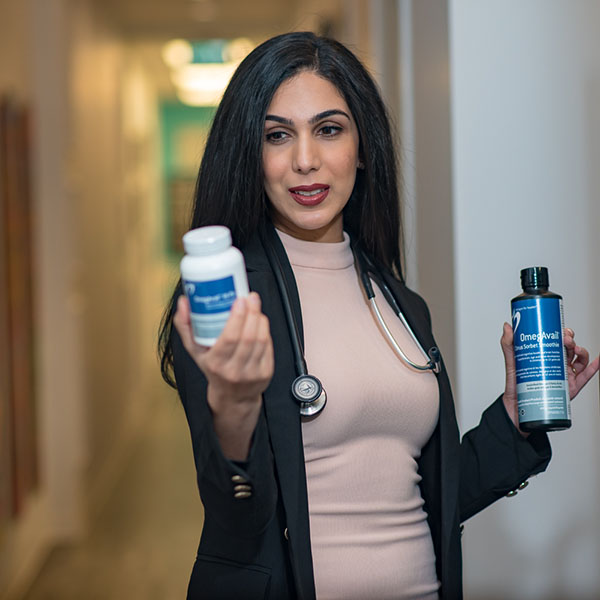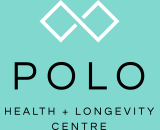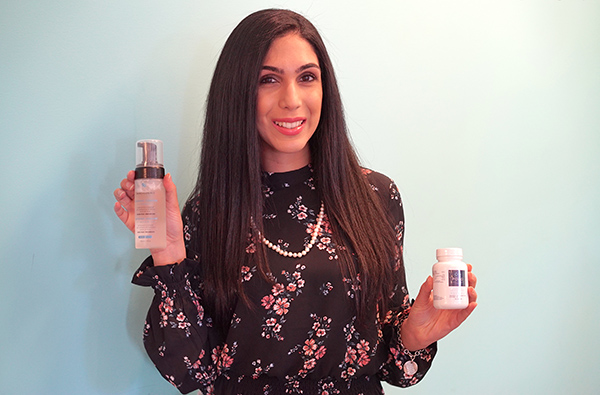
My Top 5 Nutrients to support your Eye Health
My Top 5 Nutrients to support your Eye Health
Eye health is a common concern for many people and can include dry eyes, redness, progressively decreasing eye sight, cataracts, age related macular degeneration and more. In fact, my recent visit with my Ophthalmologist is one of many reasons for this blog post (besides popular request!) Apparently my corneal thickness would allow me to undergo a series of laser eye surgeries, which he doesn’t see too often; and he has definitely evaluated a lot of eyes!!! He was impressed, and wanted me to share what I was doing with him, and so this is just some information on a few things you can be doing to help support your eye health.
The focus of this will be on nutrients, but remember, secondary conditions, medications you are taking and your lifestyle play a huge role in eye health.
Your eye contains small blood vessels and relies on tears and certain membranes for nutrients, oxygen, and lubrication. Your body utilizes many of the nutrients you consume for a number of different functions, so lifestyle is extremely important when supporting eye health. Lifestyle habits include a good consumption of fruits and vegetables, wearing sunglasses in bright conditions, proper cleansing of contact lenses, lowering your cell phone brightness, taking breaks from screen time (apply a filter) and not smoking.
1. Vitamin C
Outside of the adrenal glands, the lens contains a higher level of Vitamin C than any other body organ. The aqueous humor supplies the nutrition to the lens of the eye, and can aid in the prevention of lipid peroxidation and regeneration of glutathione. Remember, Vitamin C is well absorbed but is utilized by the body for immune function, collagen synthesis, glutathione regeneration and so much more. Some of my favourite sources of Vitamin C include Parsley, Rose hip tea, Bell peppers, and Kiwi.
2. Zinc
I use Zinc a lot, for a variety of concerns including acne, immune dysfunction, taste/smell changes, DNA synthesis, hormone support, and normal growth and development. There is definitely a fine balance between Zinc and copper, so taking the right dose is important. Most of us have been told to “eat carrots” to help with night vision, which is usually focusing on the precursor to Vitamin A, beta-carotene. Zinc, however, is responsible for bringing Vitamin A to the retina from the liver, to make the protective pigment in our eyes called melanin. Often times we don’t link poor night vision, impaired vision or even cataracts to zinc, but this trace mineral is one of my favourites and is so important! My favourite dietary source of Zinc is oysters; it is also one of the highest food sources containing about 74.0mg per serving. Other sources include: pumpkin seeds, shitake mushrooms, squash and beef.
3. Omega-3 Fatty Acids
A lot of people use artificial tears to remedy their dry eyes. Essential fatty acids help for a variety of eye conditions including age related macular degeneration, glaucoma and increased eye pressure. They play a role in promoting proper drainage of intraocular fluid, lubricating the eye and preventing/treating dry eyes. It takes time for omega-3’s to make a significant change in your fatty acid profile, so regular consumption over time is required to notice the benefits. Also, avoiding high omega-6 foods, hydrogenated oils and trans-fats can help improve your omega-3 fatty acid profile. Many sources of omega-3 fatty acids also contain supportive nutrients such as Vitamin A, Vitamin D and Calcium, which are important for our overall health. Dietary sources include herring, sardines, anchovies, and salmon. I find that it can be difficult to obtain therapeutic levels if you are not consuming these regularly, so I often recommend a good quality fish oil supplement if you are treating a condition, not just preventing it!
4. Astaxanthin
Haven’t heard of it? Its cousin’s lycopene, lutein, beta-carotene and alpha-tocopherol are in the same family of naturally occurring pigments called carotenoids. Usually emphasized for their anti-oxidant, free radical scavenging activity, astaxanthin really is a bit unique. I chose to include this for eye health because unlike its cousins it can pass the blood-brain and blood-retinal barrier (so impressive!), allowing it to exhibit its effects specifically to support eye health. It is found in algae, and has a wide variety of benefits such as UVB absorber (UVB I like to think of as the UV rays that “burn,”) protecting the skin from radiation and damage, and supporting brain health. Research around astaxanthin focuses on its use in ARMD (Age related macular degeneration,) diabetic neuropathy, central retinal arterial and venous occlusion, inflammatory eye conditions and glaucoma.
5. Vitamin A
Vitamin A really does function best in the presence of other nutrients. Surprisingly, many people lack in Vitamin A which I believe is partly due to overburdening of the liver. Some common conditions associated with Vitamin A deficiency include type I diabetes, liver disease, alcoholism, follicular hyperkeratosis (bumps on the back of the arm), and hypothyroidism. Night blindness is often where Vitamin A plays a strong role, because retinal is a key part of rhodopsin which is the pigment responsible for absorbing light and allowing us to seeing in dim light. I strongly believe that Vitamin A is often overlooked, but its role in our body is extensive. Ensuring you are not trying to conceive, and have a healthy liver, are a few reasons to be careful when supplementing Vitamin A. See your Naturopathic Doctor to ensure you are consuming this nutrient in therapeutic and safe doses for your concerns.
It is always important to keep in mind that when you take a lifestyle approach or even an orthomolecular one, nutrients are vital for many functions in our body. There are symptoms you exhibit that indicate where you may be lacking in nutrients.
Medications can also deplete certain nutrients, for example Metformin and Vitamin B12, Oral-contraceptive pills and Vitamin B6 and B9, and some are known to be side effects for eye health such as statins and cataract development.
So when using nutrition and nutrient therapy to replete, always remember your body needs these important nutrients for a variety of important processes, and there may be areas that will be prioritized first, before you see an improvement. The priority is always the best outcome for you, whether that means, vitamins, diet, herbs or even pharmaceuticals.
Assessing where improvements can be made, safely and effectively, is part of outcome based medicine!
By: Dr. Mashael Mawji, ND
BSc. FNH (Hon)

